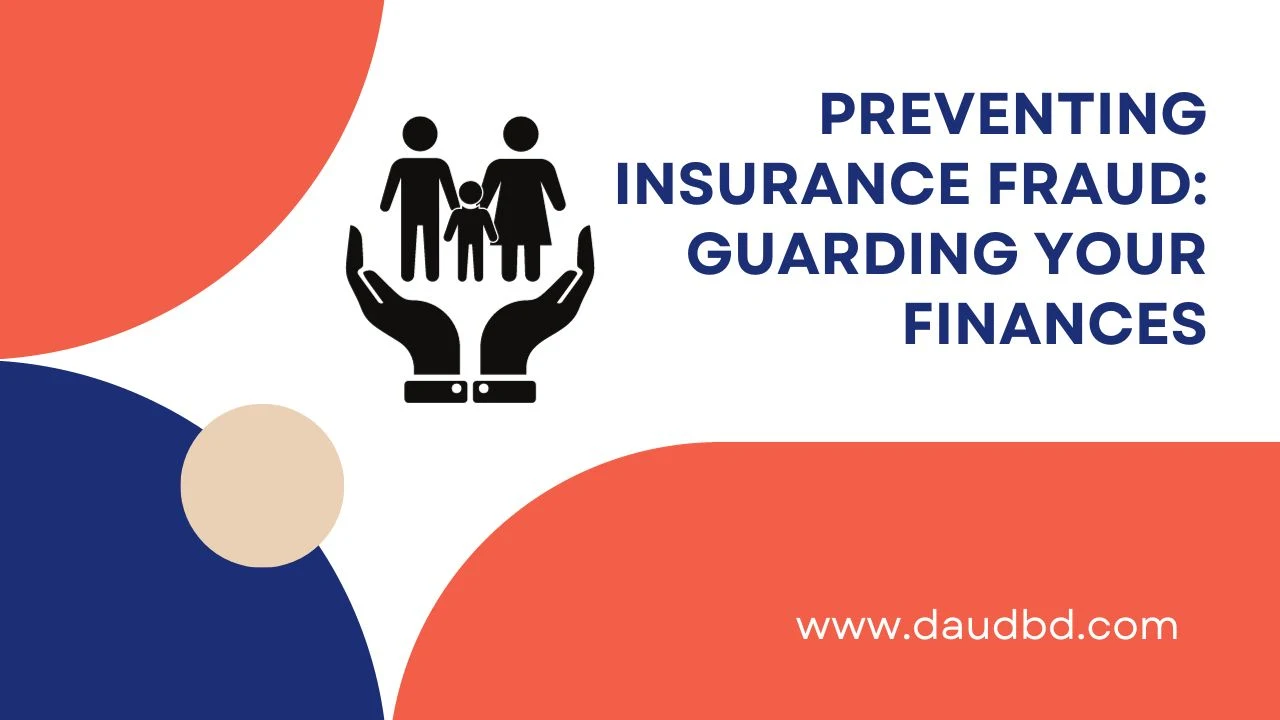
|
| Preventing Insurance Fraud: Guarding Your Finances |
Introduction
Insurance is a vital component of financial stability, offering protection and peace of mind during life's unpredictable moments. Unfortunately, insurance fraud scams are an unfortunate reality that can threaten your financial well-being. Understanding these scams and how to recognize and prevent them is crucial to safeguard your finances. In this article, we'll explore common insurance fraud schemes and provide tips to protect yourself from falling victim to them.
Identity Theft and Insurance Fraud
Identity theft is a widespread problem, and criminals often use stolen identities to commit insurance fraud. They may take out policies under your name, file fraudulent claims, or alter existing policies to benefit themselves. To prevent this, monitor your insurance statements regularly, keep personal information secure, and use strong, unique passwords for your online accounts.
Premium Diversion Scams
Premium diversion is a type of scam where an agent or broker collects insurance premiums from customers but fails to remit the payments to the insurance company. This leaves the policyholders believing they are insured, when in reality, their coverage is at risk. To protect yourself, deal only with licensed, reputable insurance professionals and verify your coverage directly with the insurance company.
Staged Accidents
Staged accidents are a prevalent type of insurance fraud. Criminals intentionally cause accidents or exaggerate injuries to claim compensation from insurance companies. To prevent falling victim to these scams, maintain a safe driving record, document any accidents or incidents thoroughly, and report any suspicious activities to law enforcement and your insurance company.
Exaggerated Claims
Some individuals exaggerate claims by inflating the value of damaged or stolen property or injuries suffered. This fraudulent practice can lead to higher payouts from insurance companies, causing increased premiums for honest policyholders. To protect yourself, document losses accurately, and only claim what you are genuinely entitled to.
Medical Billing Fraud
In the realm of health insurance, medical billing fraud is a growing concern. This type of fraud involves healthcare providers billing insurance companies for services that were never rendered or for treatments that are unnecessary. To prevent this, review your medical bills carefully, question any unfamiliar or suspicious charges, and report potential fraud to your insurance company.
Unnecessary Repairs or Services
In property insurance, contractors sometimes overstate repair costs or perform unnecessary work to increase the insurance payout. To prevent this, get multiple repair estimates, research contractors, and be cautious of anyone pressuring you into a specific service provider.
Fake Insurance Companies
Scammers have been known to create fake insurance companies and sell policies that provide little to no coverage. To avoid falling victim to this, research potential insurers thoroughly, check for licenses and contact information, and avoid making payments to individuals or entities without a solid reputation.
Watch for Red Flags
It's essential to be vigilant for red flags that indicate potential insurance fraud. These can include:
Unsolicited offers: Be wary of unsolicited phone calls, emails, or mail offering insurance policies or services.
Pressure to act quickly: Scammers often pressure victims to make immediate decisions.
Poor communication: Legitimate insurers maintain professional communication, so be cautious if communication is inconsistent, riddled with spelling errors, or comes from a generic email address.
Requests for personal information: Never share sensitive information unless you're sure of the entity's legitimacy.
Conclusion
Insurance fraud scams are a threat to your financial stability, but with awareness and vigilance, you can protect yourself. Recognizing the signs and following best practices for insurance-related transactions can help you avoid falling victim to fraudulent schemes. Remember, if something seems too good to be true, or if you have any doubts about an insurance offer or claim, it's always best to verify and report your concerns to the appropriate authorities. By taking these precautions, you can guard your finances and maintain your peace of mind.
